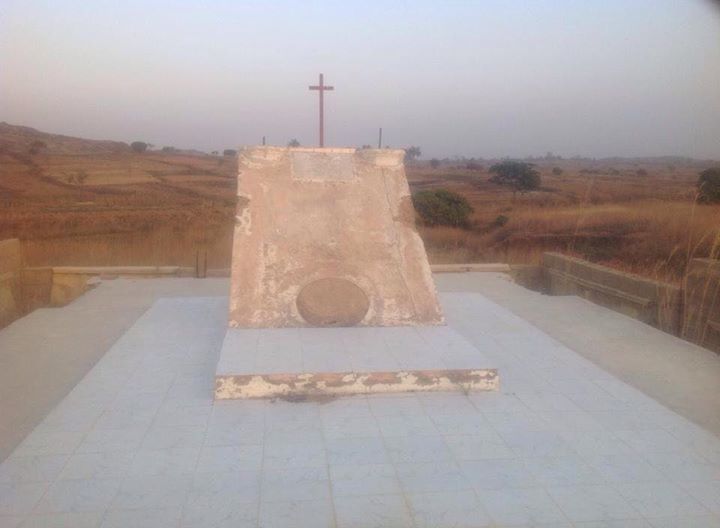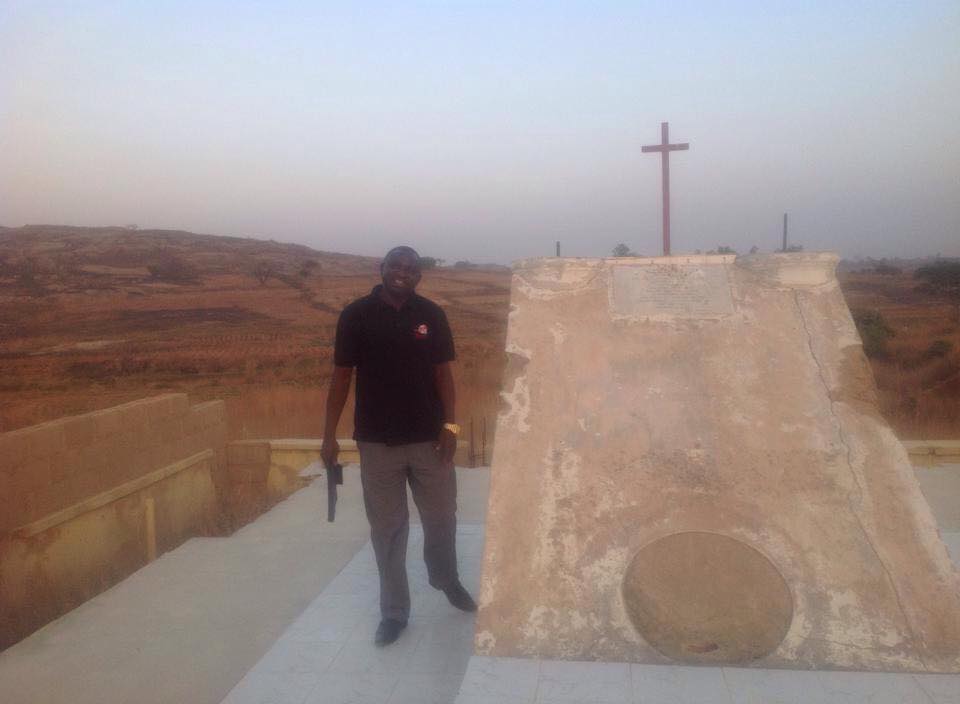SEVEN YEARS AGO ON JANUARY 22, 2010, THE VILLAGE OF DOGON HANAWA IN PLATEAU STATE WAS INVADED IN THE DEAD OF THE NIGHT. IN JUST THREE HOURS, THE VILLAGERS, MOSTLY WOMEN AND CHILDREN WERE MASSACRED. AS SOME KILLERS SHOT SPORADICALLY, OTHERS REMAINED IN THE BUSHES FOR VILLAGERS WHO ATTEMPTED TO ESCAPE TO BE MACHETED OR CUT DOWN. Reports by Dave Rotshak Lar JP

I don’t know what necessitated it again, but a few days ago, precisely on 22nd January, 2017, I paid another visit to Dogon Nahawa. To visit, and write, in that place of horror, in that place where unprecedented mass crimes were committed against God and man, was almost impossible – and it was particularly difficult and troubling for a Christian, for me a Pastor and a Plateau man. In a place like that, words failed; in the end, there was only a dread silence – a silence which was itself a heartfelt cry to God: Why, Lord, did you remain silent? How could you tolerate all this? In silence, then, I bowed my knees on the soil that sucked the blood of the over 500 people who suffered and were put to death here; yet my silence and tears became in turn a plea for forgiveness to those monsters who perpetrated this evil, a plea to the living God never to let this happen again.
Almost seven years ago, on March 7, 2010, killers invaded this sleepy village and brought death with them. I went to Dogon Nahawa as a pilgrim. I have not been there since the day we mass-buried our Kith and kins who fell by the guns and machetes of those merchants of death. I walked around the town, I saw women and children huddled together and I wondered at where they were on that day and how they escaped while their friends and relatives were hacked down. It was impossible for me not to cry. And I did cry! Again!
I alighted from my car at this dreadful place with thoughts troubling my heart, appalled by its evil, yet grateful for the fact that above its dark clouds the peace of God had come down on the inhabitants of the place. This was the same reason why I went there that day: to implore the grace of reconciliation – first of all from God, who alone can open and purify our hearts, from the men and women who suffered losses here and finally the grace of reconciliation for all those who, at this hour of our history, are suffering from the bereavements that befell them, especially our Southern Kaduna family.
How many questions arise in this place, Dogon Nahawa? Constantly the question comes up: Where was God that day? Why was He silent? How could He permit this endless slaughter, this seeming triumph of evil? As I stood on the big concrete mass grave I wept and felt so empty and shallow. I knew that man is nothing but dust.
I read the epitaph on the tombstone of the mass grave that housed over 500 souls
“They cried out with a loud voice, “O Sovereign Lord, holy and true, how long before you will judge and avenge our blood on those who dwell on the earth?” Then they were each given a white robe and told to rest a little longer, until the number of their fellow servants and their brothers should be complete, who were to be killed as they themselves had been.” (Revelations 6:10-11)
And I knew that these people who lay in the grave under my feet are at rest from their labours. I knew they were in a far more better and grander place. I also knew that they were the victors and their killers, the victims.
We cannot peer into God’s mysterious plan – we see only piecemeal, and we would be wrong to set ourselves up as judges of God and history. Then we would not be defending man, but only contributing to His downfall. No – when all is said and done, we must continue to cry out humbly yet insistently to God: Rouse yourself! Do not forget mankind, your creature! And our cry to God must also be a cry that pierces our very heart, a cry that awakens within us God’s hidden presence – so that His power, the power He has planted in our hearts, will not be buried or choked within us by the mire of selfishness, pusillanimity, indifference or opportunism and the current killers doing the biddings of their masters in Southern Kaduna and various other places.

Let us cry out to God, with all our hearts, at the present hour, when new misfortunes befall us, when all the forces of darkness seem to issue anew from human hearts: whether it is the abuse of God’s name as a means of justifying senseless violence against innocent persons, or the cynicism which refuses to acknowledge God and ridicules faith in Him. Let us cry out to God, that he may draw men and women to conversion and help them to see that violence does not bring peace, but only generates more violence – a morass of devastation in which everyone is ultimately the loser.
Dogon Nahawa is a place of memory, it is the place of the Shoah. The past is never simply the past. It always has something to say to us; it tells us the paths to take and the paths not to take. As I walked by the grave of those killed, I got a glimpse of the cynicism of a human beings who treated men and women as material objects, and failed to see them as persons embodying the image of God. The graves are pointed reminders. The killers wanted to crush the entire Plateau people, to cancel it from the register of the peoples of the earth. Thus the words of the Psalm: “We are being killed, accounted as sheep for the slaughter” were fulfilled in a terrifying way.
Deep down, those vicious criminals, by wiping out this people, wanted to kill the God who called Abraham, who spoke on Sinai and laid down principles to serve as a guide for mankind, principles that are eternally valid.
At Dogon Nahawa, Plateau State walked through a “valley of darkness.” And so, here in this place, I ended my pilgrimage with a prayer of trust – with one of the Psalms of Israel which is also a prayer of Christians: “The Lord is my shepherd, I shall not want. He makes me lie down in green pastures; he leads me beside still waters; he restores my soul. He leads me in right paths for his name’s sake. Even though I walk through the valley of the shadow of death, I fear no evil; for you are with me; your rod and your staff – they comfort me … I shall dwell in the house of the Lord my whole life long” (Ps 23:1-4, 6).








